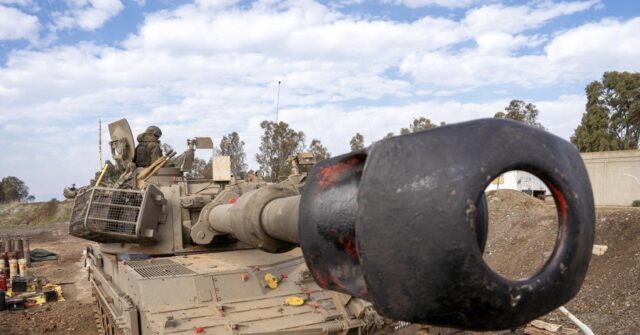Recently, the Israel Defense Forces (IDF) bolstered military positions along the Syrian border in the Golan Heights in response to escalating chaos from the Syrian civil conflict. This alteration comes amid a significant offensive by southern Syrian rebels, including Islamist factions who have gained momentum after the defeat of the Iran-backed Lebanese militant group Hezbollah. This recent advancement by the rebels, who have successfully taken control of key cities like Aleppo and Hama, marks a substantial turning point in the fight against the regime of Bashar al-Assad. Although the Assad dictatorship, supported by both Iran and Russia, faces mounting pressure, the situation remains fluid and could lead to inadvertent implications for Israel.
While Israel has refrained from directly engaging in the Syrian conflict, it views all parties involved with skepticism, seeing each as a potential threat. The country’s stance is particularly influenced by concerns over the Kurdish population in northern Syria, who have retreated from active fighting against the regime. Meanwhile, Turkey has taken a proactive role by backing the Syrian rebels, mainly due to its longstanding opposition to the Kurds, despite simultaneously supporting Hamas, an Iranian ally engaged in its own conflicts against Israel. Presently, the focus remains on the Assad regime rather than Israel, though its stability represents a potential risk to Israeli security.
The IDF’s increased readiness indicates a significant concern over possible repercussions from the deteriorating situation in Syria, particularly regarding the implications of an Assad regime collapse. Israeli forces are tasked with countering any potential instability that may spill over into Israeli territory. Israel’s annexation of the Golan Heights in 1967 was driven by a desire for security; thus, reinforcements reflect an ongoing commitment to maintaining its border security and protecting its territorial integrity against any hostile aspirations that might emerge from the power vacuum in Syria.
According to a statement from the IDF, the military is conducting ongoing assessments to remain attuned to developments in the Syrian conflict. The IDF has declared readiness to respond to any threats emanating from the situation. Ground and aerial forces have been reinforced on the Golan Heights border, emphasizing their vigilance and preparedness to act on both offensive and defensive fronts as needed. The military’s resolve to thwart any potential threats affirms their essential role in Israeli national security during this time of uncertainty.
Reports suggest that President Assad may be repositioning his forces closer to Damascus in an effort to consolidate power against the advancing rebels. Despite some airstrikes against rebel positions, Russia’s role in bolstering Assad’s regime appears limited, indicating a weakening of influence that raises questions about their commitment to the Syrian leadership. Meanwhile, Iran has struggled to rein in rebel advancements, even as it has dispatched new military advisers and militia forces to offer assistance. The current situation highlights the fragility of the alliances that have sustained the Assad regime for so long.
Amidst this turmoil, the backdrop provides a grim indication of the complex interplay of power dynamics in the Middle East, particularly as traditional authorities confront increasingly encroaching adversaries. The ongoing battles serve not only as a pivotal moment for Syria but have broader implications for nations like Israel, which must navigate the uncertain waters of regional security in the wake of potential regime changes. As the conflict evolves, the IDF’s response will remain crucial in preventing spillover and maintaining the delicate balance of power in a region fraught with uncertainty and hostilities. The developments will shape the strategic outlook for all parties involved, including the way forward for both Israel and its neighbors.

